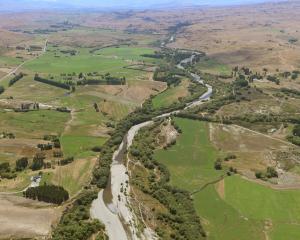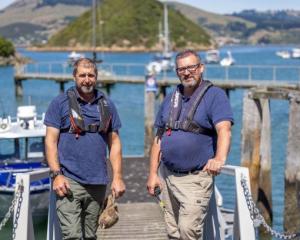Owaka should have its own water quality standards to reflect its unique environment, Otago Regional Council panelists were told at a hearing in Balclutha yesterday.
Owaka Valley farmer Grant Bradfield criticised the council's proposed water regulations, which he said set impossible standards.
He said the Owaka catchment was unique because of its high rainfall, high stocking rate and free-draining soils.
"It concerns me that we've been lumped together with a lot of other areas which have three-quarters of the rainfall, vastly different soils, vastly different stocking rates and vastly different climates."
Mr Bradfield said fencing Owaka waterways was not practical because most pasture flooded every couple of years, and at any rate the area's high rainfall produced too many streams and creeks to count.
"The whole concept of trying to control all of those springs and waterways is frankly mind-boggling," he said.
A certified organic farmer, Mr Bradfield said rural property owners could and should increase efforts to improve water quality but the council's standards were unrealistic, achievable only by de-stocking and returning pasture to bush.
"I accept there's more we can do. We're not perfect and change is needed, but I do not think these standards are at all reasonable. My appeal is for you to consider a catchment-by-catchment approach. That will probably mean more paperwork for the council but this [the proposal] is unfair and unachievable," he said.
Farmers in the area had not been so "worked up" about something in a long time, he said.
"You need to recognise that there's a huge amount of concern within our particular catchment."
Mr Bradfield said farmers did not have the tools or options at their disposal to meet standards, regardless of how long the council gave them to do so.
Fellow Owaka Valley farmer John Latta, whose property contained the source of the Owaka River, emphasised the point.
"It's going to be extremely difficult for us to meet discharge standards. We don't want to end up as criminals," he said.
Panelist Duncan Butcher said the danger of catchment-specific standards was the perception it allowed some to pollute, but not others.
He said the objective for farmers was to make an effort to meet standards.
"We are not saying you have to get there tomorrow, in which case you would be stuffed. There needs to be some positivity about this change and even if you don't get there you can say to the council you tried, which at the moment hasn't happened," he said.












